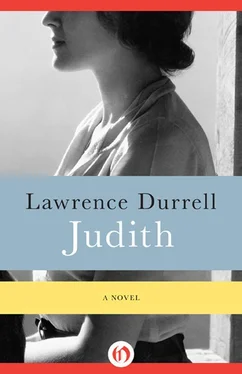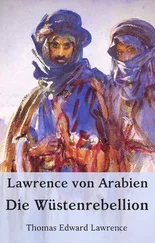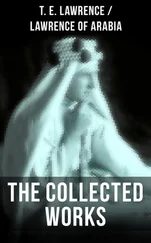Thinking these thoughts, he had turned his eyes to where the string of little white settlements dotted the mountains westward — kibbutzim with the half-joking nicknames that their inhabitants had earned for them — Brisbane, Brooklyn, Odessa, Calcutta, Warsaw, Glasgow…
Beside him he heard a gasp of horror. One of the sentries was peering through his heavy Zeiss night-glasses — peering in the direction of the head springs where the mill stood, their outpost.
“My God,” he said, “I can’t believe it.”
His hands were shaking so that he nearly dropped the glasses.
“What is it!” cried David sharply, snatching the instrument from him. He too turned the lenses on the northern corner where the Jordan, spinning out from the rock wall, fanned smoothly out into a wide green stream, pouring down the rich, lily-dappled meadows. Something was moving there on the river, something heavy which moved with a slow, halting rhythm — as if uncertain of its direction; something which turned slowly as it moved down towards them. He too caught his breath now as he focussed sharply on it…
The clumsy cross-beam of the water-mill must have been crudely sawn off to make a shape which was that of a Christian cross; there was a human figure crucified to it with bayonets. Naked, its side had been pierced so that blood dappled the white flesh and flowed down in a wave to its toes. It took some moments to realize that it was the body of Karam, and that the apparently beatific smile on the old man’s face was really a rictus of intense pain. It was impossible to tell if he were dead or not. Slowly, hoveringly, the heavy cross moved down towards Ras Shamir, grazing the banks of the Jordan, turning and spinning swiftly in its own eddies.
“Run,” said David in a voice choking with anger. “It must not reach the camp. Run I say!”
Hardly comprehending what or why, the two sentries followed the one who had himself seen the thing first. They dropped their guns and raced like hares across the fields towards the river, to head off this grim trophy of hate.
David gave a harsh sob. “They must have surprised them,” he said. “How could Towers allow… (Of course Towers knew nothing of it — it was Daud who lightened the boredom and loneliness of his illness with that original notion.)
David’s glasses swept the nearer reaches of the river where the three men, up to their waists in water, grappled with the cross and its body, steering it to land; then there was no time for any thought other than the kibbutz and its danger.
It was only when the first ripple of machine-gun fire fell like hail on the corrugated roofs that he gave a sigh of exultation, almost of relief. At long last the final decisive engagement was to take place. Though the kibbutz was now a hive of unfamiliar activity, nevertheless there was no suggestion of haste or panic as the kibbutzniks moved each to his appointed place in the shallow emplacements which the tractors had ploughed for them, and which they had surrounded with a shallow defensive field of barbed wire.
On the calm evening air, David could hear the voices of the section leaders as they ordered their files into position along the perimeter: women and men took their places in the front line, training their weapons. Down by the sawmill there came the clatter of machinery, and it was with a splendid roar that the farm tractors now crawled out to take their place in the defensive scheme. Upon each was mounted one of the cherished light machine guns bequeathed to them by the kindly Macdonald.
In all this activity, Grete played no part. She had been forced to accept, much against her will, the role of children’s warden. Indeed, she had come near to an acrimonious exchange with Anna over the business, so anxious had she been to share the front-line dangers of David and the men. But there were not enough guns to go around as it was, and Peterson herself had settled the argument abruptly by saying:
“There are so many more important things to do. Stop being childish and do as you’re told. Your place is with the children.”
So she now found herself locked into the great barn-like cellars with the smallest of the children — those who were ten years old and upwards had been given tasks to do which had a direct military bearing, acting as powder-monkeys, carrying ammunition, messages from those in the outer perimeter to the central command, and medical supplies.
Trouble began to spread now like burning oil on water, and every day brought its quota of ugly news and rumour, tidings of riot and burnings within, of menaces and provocations without. Yet still the valley lay in the winter sunlight, deceptively at peace, while the whole country was going through a convulsion around it — death-struggle or birth-pangs — who could say? By now the ugliness of Arab threats, and the fact that their armies were poised on the borders, waiting to pounce, left the kibbutzniks in little doubt that they would not escape the onslaught in this one small and remote sector.
But when Towers did get the order to move down into the plain and invest Ras Shamir, Daud was lying ill with fever and a new haemorrhage; it was plain that he would not be able to play an active part. He lay among the coloured cushions, exhausted, with flushed cheeks, and told Towers: “You will advance anyway, Towers.” Towers grunted and nodded. “I am bitterly sorry not to ride with you,” said Daud, but the old man said: “You will miss nothing. I am sure they will surrender. No shot will be fired. You will see. If I move we shall have the place in our hands in a couple of hours.” He really believed this himself; indeed, to such a degree that he repeated it almost word for word to his staff as they sat by swinging lantern-light, making their final preparations for the morning start. It was to be a thoroughly orthodox operation — a “bus-ride” in Towers’ expressive phrase. They would move down onto the plain and advance with the armoured cars in dart formation, infantry in open order.
So it fell out, exactly as planned, but of course no such operation could be conducted invisibly, and with the very first move of the scouts in the pass, with the first trails of dust rising from the lorry convoys with their infantry, the look-out at Ras Shamir picked them up and reported the fact. Pete watched them keenly for a second and then blew her whistle for general assembly. “I think we have a little time before they get here,” she said soberly. “Send out the markers to mark the minefield.” A dozen children raced out to mark the low pickets and tracery of wire with death-head signs and the forbidding words “DANGER — MINES”. The men and women went slowly, purposefully, down to the magazine to draw their weapons, and then each went to his or her allotted place. Judith was in the second section with a group of yellow-haired Poles and four other girls, among them Anna who was the section leader. A deathly hush had fallen upon the settlement now, broken only by the low talk and murmurs of the defenders as they took up sighting positions.
Slowly, like a brown stain on the greensward of the plain, Towers’ infantry debussed and formed up in battle line. Then the whole mass began its cumbersome movement forward, walking behind the armoured cars. Towers, who scorned armour, walked at the head of his section, grim of face; the existence of a hitherto unnoticed minefield infuriated him as an example of faulty intelligence. Nevertheless, it might be a fake minefield for all one knew. The intention was to advance up to the wire and call for a surrender, but they were already within a few hundred yards when a long rippling glissando of machine-gun fire broke from the perimeter of the settlement and swished among them like a scythe gone mad. There was a moment’s hesitation and Towers called to his section-leaders to reform and continue the advance. “Bless my soul,” he said to himself, almost with an academic pleasure, “at least four heavy machine guns. Who would have thought it?” Another long slither of fire, and he saw some of his middle section fall. He gave the order to halt and lie down, while he himself walked forward to the wire with the bullets flickering about him, cutting the heads off flowers and sending up puffs of soil. He walked slowly and thoughtfully, like a professor approaching a blackboard to make a demonstration of an academic fact. At the sight of this solitary figure advancing, the fire tailed away and ceased. Towers advanced to the wire, producing a white handkerchief from his sleeve, and made a vague and somewhat indefinite gesture towards the Jewish lines. It was the sort of half-modest movement that a public entertainer makes when imploring an audience to desist from further applause in order that he may complete an encore. “He wants to parley,” said Anna grimly. A moment of indecision, and then they saw the minatory figure of Miss Peterson, Sten gun across her shoulder, advancing to meet the officer; it was a well-calculated choice of sector, too, for she was able to advance along the broad path between the fake minefields, thus offering an apparent indication of a safe road through them. But she was in fact walking over the grass and bramble-covered pits they had so laboriously cleared and covered. Towers, waiting for her, grunted and made the deduction he was supposed to make — the wrong one. He was extremely put out to be faced by a woman. He saluted and put on a quacking Camberley accent in order to disguise his confusion. “My orders are to call on you to surrender,” he said. “Nobody will be harmed — you have my word for it.”
Читать дальше












